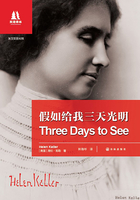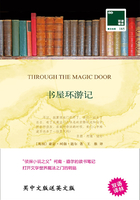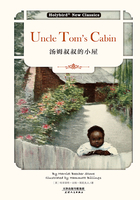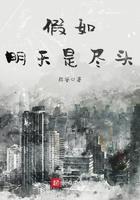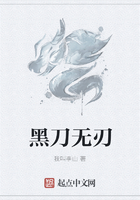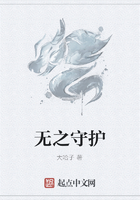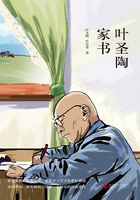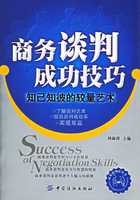Three of us set out on a Boeing 757 to Pongda. There were several diffculties involved in the flight to Pongda. Because of the alti-tude on the plateau, the takeoff and landing were different from the schedule. Flights were often cancelled or delayed. Sometimes several days or even a week would pass without being able to land in Pongda. The wife of Liu Baicang, the leader of the Third Detachment, took her children to the Sichuan-Tibet Highway to visit him. The plane was unable to land for a whole week. They had to change to a bus, and after many hardships and a long period of discomfort they arrived with the unit just as the holiday was about to end. They stayed for several days and then hurried back, but the children were still late to register for school. This time the trip was smooth, smoother than ever before. The plane took off on time. There were only about eighty people in the passenger compart-ment of the plane, which was designed in total to hold two hundred people. It was said to be because of safety. It only took an hour from Chengdu to Pongda. As soon as the plane took off, we could look at the rolling, unbroken snowy mountains from the windows, and the Sichuan-Tibet Highway that looked like a chicken's intestines. The highway was at times visible and invisible, winding among the glacial mountains and the snow-filled valleys. It seemed so delicate that it would not support a single blow. However, in the process of building and repairing since the 1950s, it had played a silent but critical role in national defense and the economy on the southwestern border. Looking down on the road, thoughts and emotions surged unwarranted to my mind, and I felt a myriad of different things.
According to the statistics, in the fifty years that the road had existed, over two thousand five hundred offcers and men had sacri-ficed their lives to keep this "Road to Heaven" open. On average, there was the body of a martyr buried beneath the ground at every mile. It was not so much a road as a memorial stele constructed with human lives. The plane shook several times, as if asphyxiated, and shuddered in to land on the world's highest airport. When I walked out from the cabin and looked about, the snow on the top of the mountain glistened white. A gust of cold air rushed into my face. I felt dizzy, and my legs felt weak. For a moment I lost my sense of balance. But Hao Yaming and I were veterans of the plateau, after all, and once we had walked along a section of road it was fine. The reporter Chen Xiaozhong, who had never been up on the plateau before, had a severe reaction to the altitude. His face quickly became pale and his lips turned purple. He was fifty years old, and so of course the altitude sickness was unavoidable. As a seasoned reporter for the People's Daily, the fact that he had come to the Sichuan-Tibet Highway at all was already wonderful.
Old Chen said, "My head hurts." I said, "Yes, I'm sure it does. Do you want to test for altitude sickness? That's altitude sickness!"He said, "The reaction's so extreme. Even walking along the road I stumble and can't keep straight. How do your offcers and soldiers do the work?" I said, "They're already used to it." Xiao Su, the driver for the Third Detachment, drove to the airport to receive us. We were just preparing to leave when a young woman in fashion-able clothes wearing platform shoes walked in. She asked me, "Are you from the Third Detachment?" I said, "How did you know?"
She said, "I recognized your vehicle plate. I'm from the same family as one of the volunteers from the Third Division. Can you give me a hand?" As soon as we heard that she was related to someone from the unit, we hurried to help her get into the vehicle. The girl was young and excited, and began to gabble. Everyone who goes up to the plateau for the first time was like that. She said that her family lived in Jiangyou, not far from the Third Detach-ment base. During the winter of the year before last she had been introduced to a young man, and in March of the current year she had been married before the unit went up the mountain. They had not finished the honeymoon before he had to leave. She wrote several letters and wanted to go up and see him, but he would not allow it. He said that there were frequent landslides on the top and it was very dangerous-there was also altitude sickness. The girl said, "I didn't listen to any of that, and so I went up without telling him. He used the idea of altitude sickness to frighten me. Was it alright for me to go up? I didn't feel a thing!" Not long after she said it her face began to turn pale and she called to the driver to stop the vehicle. She said she wanted to vomit. Xiao Su stopped the vehicle by the side of the road. The girl crouched by the roadside and vomited for a long time. When she had finished, she looked at the beautiful ginseng flowers coming into bloom everywhere on the Pongda grasslands, and her spirits revived.
She saw the camera in my hand and said, "Can you take one for me? I want to take one back to give to my sisters. It's so beau-tiful here!" I agreed to her request. Two hours later, we had crossed the Yela Mountain, a famous site on the Sichuan-Tibet Highway at 4,618 meters above sea level. On the summit of the mountain, a placard erected by the Maintenance Unit stood majestically. There was also a multicolored streamer hung by the Tibetan people. Having walked endless paths and navigated forks and diversions, we now entered the Gama valley. Here, we saw the men of the Third Division at work. The first person we met was Shi Ming, Director of the Political Division of the Third Detachment. His skin was dark and swarthy, and his face was covered in dust, but he looked robust. He had been sent here by the Detachment on a yearly basis to gain experience at the grassroots level. We had known Shi Ming for several years, and when he saw me he rushed to greet me. I introduced the reporter Chen to him, and afterwards said to Chen privately, "Shi Ming is the son of the former general Shi Zhao, Number One Commander in Chief!" For a moment Chen sighed deeply, and then he said that it was worthy of admira-tion that a general would put his own son in a mountain valley like this. There were fewer and fewer people like that now, he said.
On the construction site we found the new husband of the girl from Jiangyou. As soon as the girl saw her husband, who was covered in dust from head to toe, she leapt from the vehicle and ran towards him. She didn't care how many people were watching, but in a flash embraced the stunned soldier, her tears streaming down her face. I caught an image of the moving scene on my camera. Unfortunately, I lost the roll of film along with my interview books several days later when crossing the great landslide area. At the time I had recorded the name of the girl and her husband in the interview book, but now I cannot remember them, just as I cannot remember the names of several others who I met after them. We continued forwards, and planned to press on to Basu County before it got dark. Basu County was the site of the Headquarters of the Third Detachment of the Sichuan-Tibet Highway. The highway looped down and down from the Gama valley to Basu, as if it were unfurling into hell. On one side of the road was the Nu River that rolled towards the east. This was the Nujiang River Canyon of the Sichuan-Tibet Highway that extended for a hundred kilometers. We drove onto the right-hand shore of the Nu River, and when we had crossed the bridge over the Nu beyond we drove into the "Nu Ba" section. The highway was now flung over to the left shore. The "Nu Ba" section was a typical stretch on the line where landslides frequently occurred. Virtually every year there was a landslide of some intensity. We fervently hoped that today Heaven would open his eyes, and allow peace to reign.
The unit had just completed reforms of over forty kilometers of the "Nu Ba" section. However, because of the condition of the rock there, the road had virtually been chiseled out of the tough cliff side. It was very narrow, and rocks often rolled down from the summit. Driving there was extremely dangerous. There were endless stories to tell about the "Nu Ba" section of the highway. Wang Guiying, the wife of Commissar Li Shengrong of the Third Detachment (the acting vice-commissar of the First Regiment), had not seen her husband come home for a year. She took her son to the plateau to find him. When they crossed the Nuba section, she paled in fright, and dared not say a word. She gripped her husband's arm with both hands and trembled. Not long after they had passed through, the Nuba section caved in. Wang Guiying and her son Li Fei were trapped in Basu County. The time came for the son to go back to school, and so they had to return to Chengdu;however, they had still not cleared away the landslide section of the road. Li Shengrong climbed the hills and waded through rivers along a diversionary route from the landslide area. He walked over forty kilometers, and took his wife and child out of the Nuba section. On that stretch of road, the child Li Fei wore out his father's pair of new yellow rubber shoes. As soon as Wang Guiying returned to Chengdu she told the other military wives, "They're suffering enormously up there. It's simply hell. We need to be good to them until they get back; we can't start complaining again that they're not here to look after the household."
On the twenty-second of September 1997, three soldiers from the First Squadron, Huang Xinzhong, Zhang Zhihong and Li Bingcen were carrying out transportation work on the Nuba section. In a moment of carelessness the vehicle overturned and they were killed. Huang Xinzhong had not long been married, and had returned soon after to the Sichuan-Tibet Highway. This was the first time that he and his wife had parted, and now it was forever. When he gave up his life, his wife was three months preg-nant. Zhang Zhihong was nineteen; in a letter to his parents he had said, "In two months' time I can come home to visit you. In reality, however, those two months became a period of time that solidified and stagnated. Li Bingcen was twenty. On his deathbed, he simply said to his comrades, "This road is too dangerous. You need to improve it, and make it safe and open to travel on." Those three young soldiers merged their lives with the Sichuan-Tibet Highway, and became one with the vast, boundless snowy expanse of the plateau.
After the three soldiers had given their lives, a fine rain fell for three days on end. It seemed like a farewell for them. A hall of mourning was erected in the crude hospital at Basu County. The Tibetan people came from diverse places to weep for them, and spontaneously kept a vigil beside the coffns. No matter how we urged them, they would not leave their wake. For three days and three nights groups of Tibetans would leave and arrive to main-tain their vigil in a constant stream. On the day that the memorial ceremony began the Party Committee Secretary for the county arrived, and so did the head of the county. The whole town turned out for the occasion; almost everyone gathered at the Basu County hospital. The original plan was for Commissar Li Shengrong to read out the memorial elegy, but he was so overcome with the tragedy of the event that he was rendered unable to perform his duties before the ceremony had even started. He had the Vice-Leader of one of the squadrons take his place. This man was always resolute and firm, but that day he had to stop his address three times to choke back sobs.
During the funeral procession the rain suddenly began to fall more heavily. The people braved the shower and set off the fire-crackers that they had bought for the occasion. They followed closely in step behind the hearse, releasing the fireworks. A lonely old man who had been cared for by Zhang Zhihong and Li Bingcen while they had lived had walked the mountain roads for two days to get to the Basu County seat. He had arrived late, but when he had bought firecrackers and paper money to burn for the dead he staggered to the base. They had already buried the three martyrs, but the old man faced the three fresh tombs and knelt for a while as the tears streamed down his face.
As we drew closer and closer to the Nuba section, I felt a growing heaviness in my heart. The reporter Chen asked me what I was thinking. I didn't tell him what had happened there before. I was afraid that I would add to his stress. I told him instead the story about the "Conquering Mountain" at the head of the Nu River Bridge that preserved fifty years of rock paintings.
That year when the People's Liberation Army was repairing the Nu River Bridge, a technician went alone in the evening to look at the pier of the bridge, which had just been cast but had not yet solidified. He slipped and fell into the concrete slurry; he wanted to cry out, but his mouth was blocked up with mud. He tried to claw his way out desperately, but he sank deeper and the mud trapped him more deeply. The slurry quickly buried his head. When his comrades realized the next day, he had already turned to solid concrete like the pier of the bridge. All that came to light was a stiff hand, stretched out straight towards the heavens. To this day, the technician still stands inside the pier of the bridge. After-wards when the bridge had been repaired, a platoon of soldiers all lost their lives, leaving only the platoon commander alive. The commander was grief-stricken, and leapt into the broiling Nu River to try and find the soldiers who had been his companions day and night. In order to remember this first generation of Road Maintenance soldiers on the Sichuan-Tibet Highway, later soldiers working on road maintenance on the line carved a diagram on the cliff surface to narrate the story of the platoon commander leaping into the river. Decades passed, and the picture was exposed to countless assaults by wind and rain. It did not vanish, however, and it can be seen today without blemish, vividly lifelike.
The reporter Chen said with a heavy heart, "That cliff mural is a solid piece of history. When we get to the Nu River Bridge, you've got to take us to see it." After about a mile or two we came to the Nu River Bridge. A light rain suddenly began to fall. I found it odd that we saw no vehicles approaching on the road. In the drizzle, a girl came running towards us from the other side of the road. In the gloomy hues of our environment, her red jacket seemed particularly eye-catching. When she saw our vehicle she waved her hand to get us to stop. The vehicle stopped by her side.
She said breathlessly, "There's a landslide up ahead; you can't get through." I looked up and all I could see was the dust from the Nu River Bridge swirling around. The sky was all dark and overcast. There really had been a landslide! And it was on the Nuba section! I asked the girl about the landslide, and she was unable to say how big it had been. She simply said that a vehicle of three people that had passed through there was missing; perhaps it had been struck into the river by the mudslide.
The girl was already drenched by the rain. She said that if she had not run into us, then she would have prepared herself to walk back to her husband's division. It was forty-five kilometers from here to the Gama Valley, and she was willing to walk the way back! We quickly made her get into our vehicle, and told her that we would wait until we had advanced a way forward to understand the extent of the landslide before taking her to the Gama Valley. We arrived at the Nu River Bridge. There were several dozen vehi-cles blocked up there. The landslide beyond was continuing, and we could clearly hear it crash and boom. Even amid the rain, we could still see thick dust turning and rolling ahead, and we could smell the choking taste of earth.
It was very dangerous, but it was only a few kilometers further! If we had not spent time on the road taking pictures for the girl in high-heeled shoes, perhaps our fate would have been the same as the driver of the missing vehicle; we would simply have walked into a landslide area. Death stroked my forehead! When we had gained an understanding of the initial landslide situa-tion, we quickly turned and headed back. On the way the girl said that she also used to be a soldier in the Communications Battalion of the Land Army. Last year she was demobilized and returned to Jiangyou in Sichuan. She came here to marry a platoon commander from the Fourth Division. She had been enrolled and accepted into a college, but the time for her to register was about to come and there were interruptions along her route home. She was also unable to buy a plane ticket from Pongda to Chengdu. She had just taken a vehicle across the roads and was now plan-ning to travel to Basu County to register with the college over the phone. She had just reached the Nu River Bridge when the land-slide happened, and she barely escaped with her life.
When we returned to the Gama Valley we conveyed news of the Nuba landslide to the unit. At that point the unit in the Gama Valley had just received an earlier order from the squadron near the landslide place, and were preparing to send out a small team to go ahead to the Nuba stretch of road to look for the missing personnel. The soldiers searched for three days but failed to find the three missing drivers. They became the first people to die in this landslide. The initial survey study of the landslide site conducted by the technicians revealed that half of the mountain-side opposite the Nuba stretch of road had caved in. Lingquhe on the upper reaches of the Nujiang River was snapped in half, and the river water suddenly overflowed into the canyon, forming a long, narrow lake three kilometers wide. Six kilometers of road was destroyed.
The offcers and men discovered with amazement that a great landslide of similar proportions had happened before on this stretch of road on the thirteenth of August 1998. It was shorter than the current landslide by one day. The landslide in 1998 had led to over forty days of labor by the Third Detachment to recover and reopen the road. The current landslide, however, was more serious than the previous one. Because small landslides still happened afterwards, it was impossible for a short while to esti-mate the scale of the disaster. On the Sichuan-Tibet Highway, the curtain was drawn back for yet another battle.
Life Is Arrested at Eighteen
With the landslide before us, we had no choice but to stay with the Construction Division of the Third Detachment in the Gama Valley. Some of the men of the division had already gone to the landslide site to search for missing people. Because landslides were still happening, the unit could not enter the site to deal with the emergency, but had to await orders in the Gama Valley. The water that the unit drank was from water distilled from snow, sourced through plastic pipes that allowed water to flow down four or five thousand meters from the summit of the mountain. The new recruits who had just come up to the plateau caught diarrhea as soon as they drank it. Speaking of new recruits, I can recall one called Zeng Yu, who had joined the army that year.
Zeng Yu's division was in the Gama Valley. Zeng Yu had come up to the Sichuan-Tibet Highway on the seventeenth of March, and sacrificed his life on the construction site in the Gama Valley on the eighteenth of April. It was about three o'clock in the after-noon, and he and his comrades were at work. Suddenly a rock above their heads slid down and dashed him so that he was a mess of flesh and blood. He stopped breathing. His life would remain forever in the proverbial growth ring that marked him as eighteen years old.
Vice-Commissar of the Third Detachment Li Xinguo later recalled, "Zeng Yu was a good soldier. Even when he was a new recruit he performed remarkably, and people thought he was an exceptional soldier. He was very talented, and loved to play sport. He had the gift of the gab, and he was the backbone of the divi-sion's artistic side. In the evening two days before he died, he and some of the other new recruits gave a performance at the Art and Literature Party that the division organized. On the day that Zeng had his accident, Li was supervising the work at another construc-tion site not far from here. The handcart driver from there, Tian Mingfu, ran over to report what had happened. He said that there had been a landslide on the Third Division construction site. Li ran hurriedly to the site of the accident. He arrived there quickly and saw Zeng Yu lying in a pool of his own blood. His face was covered with his camouflage outfit. The Instructor, Huang Hongwei, stood stupidly by the side, his face deathly pale. Li called out, "take him down and try to save him!" Huang Hongwei shook his head pain-fully, and his tears flicked onto the ground. Li lifted the camouflage clothes to look at Zeng's face, and was stunned. Half of Zeng Yu's head and body had been crushed by the rock, and it looked like a book stuck to blood-soaked ground. When they began to arrange the body, the army doctor Zhao Yajun had to use needles to stitch Zeng Yu's flesh back together.
During the night I saw Zhou Xianzhi, a recruit who had joined the army at the same time as Zeng Yu. He had been in the same platoon as Zeng Yu, slept in the same bed in the same wooden room as him, and had eaten at the same table. He said, "When it happened I was in the vehicle loading rocks. Zeng Yu was under the vehicle moving them. I heard the rocks sliding down, and I called out loudly: Zeng Yu, run! I leapt down from the vehicle and hid under it, covering my head. When the dust and soil had settled, I called out for Zeng Yu again and again, but I heard nothing back. I ran over to look, and he was already on the ground with a huge rock pressing down on him. There was so much blood on the ground . . . " Zhou Xianzhi cried tears that covered his face, and said no more.
After a good deal of time he then continued, "Zeng Yu and I came from the same place. At school we played basketball together a lot. He was very tall and he could run fast. He was handsome, too, and his classmates all liked to watch him play. When we had just come up to the plateau, we were suffering from the alti-tude and the work was tough. My head hurt a lot and I couldn't eat. Zeng Yu often comforted me. Because we were here we had to work hard, so that our parents wouldn't lose face. After he left, I would always see the bench where he used to sit. There was nobody on the bench, and he wasn't there, and then I wanted to cry. Sometimes I got so sad thinking of him, and so I went to hide by the riverside and cry. The more I cried the more it hurt. The place I was standing was where he and I often had deep talks before. He was always so optimistic, and full of hope for the future. He had so many ideals. He said that suffering is a rare form of riches for a person, and so he was overjoyed when he got to the Sichuan-Tibet Highway. He loved the Line, and he loved Tibet. He wrote an article, too, which he called Falling in Love with Tibet.
Zeng Yu wrote the article after he came to the Highway. Before he died he sent it to the News in Brief, the magazine the Political Department of the Headquarters circulates. Regrettably, because the Sichuan-Tibet Highway stretched over a huge distance, by the time we received the article he had already sacrificed his life. We published the article as fast as was possible, and added an editor's note and a black frame around Zeng Yu's name. The title of the article was To Fight for the Beautiful Place, the content as follows:


